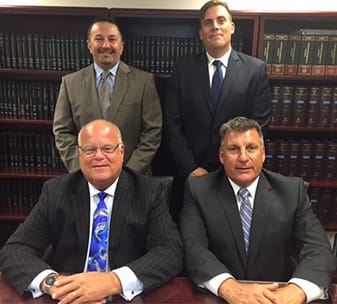Keeping your New Years’ resolution to address burdensome debts
Filing bankruptcy to address your debt problem is one of the greatest gifts you can give yourself in the New Year.
With the holidays behind us, many people find that this is a good time to make changes to their lives or address problems that have long plagued them. For many people, such problems include troublesome debts and the creditor harassment that follows. Fortunately, filing bankruptcy can help both problems. In fact, seeking bankruptcy protection may be one of the best after-holiday gifts you can give yourself.
Creditor harassment assistance
When you are behind on your bills, you may be receiving annoying or harassing phone calls or letters from debt collectors. Although you have legal protections against creditor harassment under the Fair Debt Collections Practices Act, the act does not address your debt problem or protect you against reasonable and legal efforts to collect a valid debt.
Filing bankruptcy, on the other hand, can provide real relief. Once you file bankruptcy, the automatic stay goes into effect, which immediately stops all phone calls, letters, lawsuits, foreclosures, repossessions and other debt collection efforts. Any creditor that violates the stay can face fines and sanctions for contempt of court. This gives you valuable protection against creditor harassment while your debts are being dealt with during the bankruptcy process.
Debt relief
Of course, bankruptcy is more than the automatic stay, as most people file it for its ability to relieve debt that they cannot afford to pay back. Regardless of whether you file Chapter 7 or Chapter 13, you may find that both are helpful in addressing your underlying unsecured or secured debts.
For your unsecured debts, such as credit cards, medical bills, utilities and personal loans, both types of bankruptcy can be of significant help. In Chapter 7, most of this type of debt is discharged within a few months after filing, allowing you to quickly get out from under it. Although Chapter 13 involves a payment plan, in most situations, unsecured debt does not have to be paid back, so this type of bankruptcy is also helpful in ridding you of this type of debt. However, the Chapter 13 process is significantly longer than Chapter 7.
If you are behind on your secured debts, such as your mortgage or car loan, Chapter 13 is often a bigger help than Chapter 7. During Chapter 13, your arrearages on your secured debt become part of the payment plan. Under the plan, you make affordable monthly payments towards what you owe over a three to five-year period. During this period, your lender may not foreclosure or repossess your house or car. After the plan has been completed, you emerge current on your secured debt.
In Chapter 7, on the other hand, your secured debt must be kept current throughout the process if foreclosure or repossession is to be avoided. The automatic stay gives you temporary protection against losing the collateral, but if the debt is not made current, your lender may seek to lift the stay and reinstitute foreclosure or repossession proceedings. However, by quickly eliminating your unsecured debt, many people find that they are able to become current on their secured debts in Chapter 7 more easily than doing nothing.
Speak to an attorney
Depending on your situation, one type of bankruptcy may be better for you than another. As a result, it is vital to speak with an experienced bankruptcy attorney before filing. The attorneys at Macco Law Group, LLP can listen to your unique circumstances and recommend the solution that would be most effective in making you debt free in the New Year.

